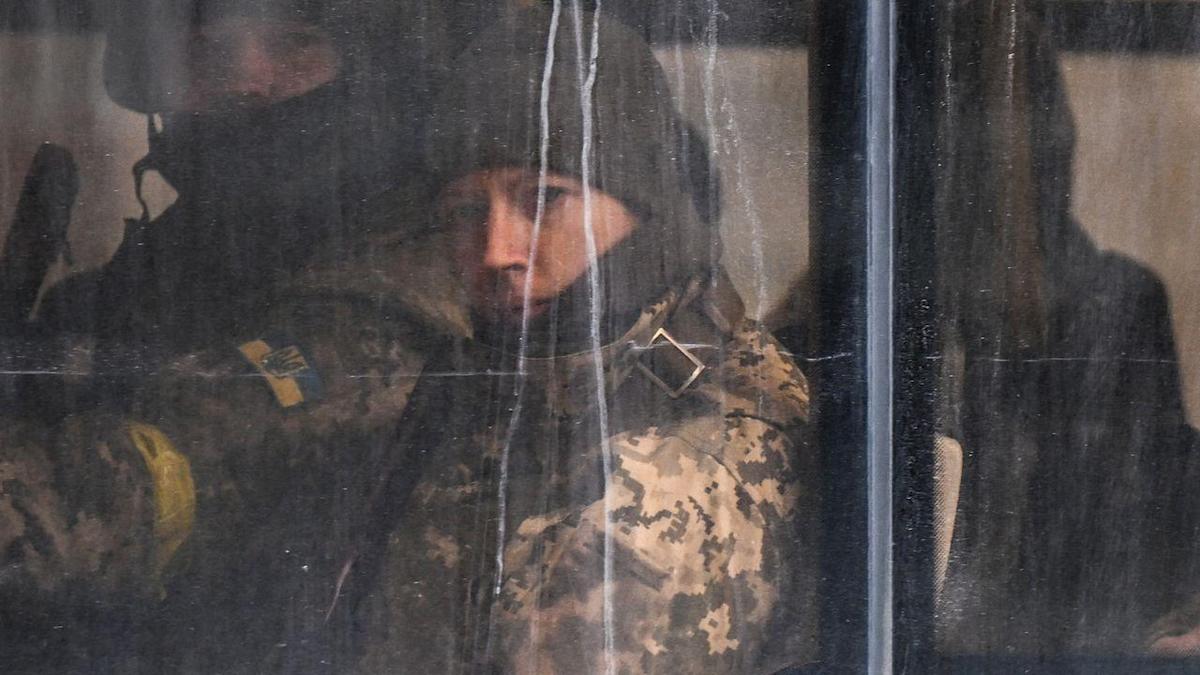
A flurry of major announcements on Sunday — an announcement of peace talks from President Volodymy Zelensky, a nuclear warning from President Vladimir Putin, and dramatic pledges of support from Europe — came as additional Russian troops moved toward the Ukrainian capital, Kyiv.
State of play: A senior Pentagon official told reporters on Sunday morning that Russia has now committed two-thirds of its massed forces to the fight inside Ukraine, and has fired over 320 missiles, but still does not hold a major population center.
Get market news worthy of your time with Axios Markets. Subscribe for free.
-
The invasion has caused at least 352 civilian casualties, including 14 children with another 1,684 people, including 116 children, injured, Ukraine’s Ministry of Interior announced Sunday.
Catch up quick:
-
Zelensky announced on Telegram following a conversation with Belarusian President Alexander Lukashenko that Russia and Ukraine had agreed to hold peace talks with “no preconditions” on the Ukrainian-Belarusian border, near the Pripyat River.
-
Putin ordered Russia’s nuclear deterrent forces on high alert on Sunday, citing Western sanctions and “aggressive statements.” Ukrainian Foreign Minister Dmytro Kuleba said Kyiv sees that as an attempt “to raise stakes and to put additional pressure on the Ukrainian delegation” in the peace talks.
-
Maxar satellite images showed a massive Russian convoy 40 miles from Kyiv and moving toward the city. Kyiv Mayor Vitali Klitschko told the AP that Kyiv was “encircled” with all routes out of the city now blocked, but his spokesman later said he “misspoke,” per the Kyiv Independent.
-
The European Union announced sweeping sanctions on Russian aircraft and state media and said that, for the first time, the bloc will buy and deliver weapons to Ukraine — including transferring Soviet-era fighter jets.
-
Russian troops continued to suffer setbacks. Ukraine’s Defense Ministry said all of Kharkiv — Ukraine’s second-largest city, which lies on its eastern border with Russia and has endured some of the heaviest fighting of the war — was back under Ukrainian control.
-
The United Nations will convene a rare emergency session of the 193-member General Assembly on Monday to vote on a resolution calling for peace in Ukraine.
What to watch: Defense analysts have warned that Russia is likely to respond to the stiff Ukrainian resistance, and some humiliating setbacks, with still more aggressive tactics.
What they’re saying: Announcing the peace talks plan, Zelensky said, “Lukashenko has taken responsibility for ensuring that all planes, helicopters and missiles stationed on Belarusian territory remain on the ground during the Ukrainian delegation’s travel, talks and return.”
-
“Our president, from the beginning, even before the war started, was focused on the diplomatic solution,” Ukrainian Ambassador to the U.S. Oksana Markarova said after the announcement, per CNN. “But he always said, ‘we’re ready for peace talks, we’re not ready to surrender.'”
-
Zelensky had previously rejected a Russian offer to meet in Minsk and offered alternative locations, including Warsaw and Israel.
-
“We go there to listen to what Russia wants to say,” Kuleba said on Sunday. “We are bleeding, but we continue to successfully defend ourselves,” he added, comparing Russian President Vladimir Putin’s tactics to those of Adolf Hitler.
85h of defence.Intimidation of ???????? is imprudent. Its impossible to break our defenders,moreover its impossible to make the Kyiv lay down arms.The times are difficult,but it will pass.???????? will win.We’re already winning.Therefore, we advise the occupiers to go home. It’s not too late pic.twitter.com/6NPnqOctom
— Oleksii Reznikov (@oleksiireznikov) February 27, 2022
Between the lines: It’s unclear what exactly can be achieved from negotiations between envoys sent by Putin and Zelensky, given that Putin’s unprovoked invasion appears to be aimed largely at removing Zelensky from power.
Zoom in: In his AP interview, Klitschko said Kyiv residents still have water and electricity, “but the infrastructure is destroyed to deliver the food and medication,” which he said could cause a “humanitarian catastrophe.”
-
At least nine civilians including one child have been killed in the city so far, he said.
-
Earlier in the day, the Pentagon official said the bulk of Russia’s forces had stalled about 30km (19 miles) from the city center.
Meanwhile, Western signals of resolve continue to flood in.
-
European Commission President Ursula von der Leyen announced that the all “Russian-owned, Russian registered or Russian-controlled aircraft,” including the private jets of oligarchs, would be banned from European airspace.
-
German Chancellor Olaf Scholz declared that Russia’s invasion “marks a turning point in the history of our continent,” and promised major new contributions to Ukraine and to Germany’s own defenses.
-
Meanwhile there were long lines at ATMs in Moscow as Russians braced for severe financial sanctions which have sent the value of the ruble plunging to historic lows even before all the sanctions take effect.
The Kremlin and state media continue to tell Russians that no “war” or “invasion” is taking place, but instead states there’s a limited defensive operation in eastern Ukraine.
What to watch: Having already threatened any independent publications that report on Russian casualties or aggression with censorship, the government is preparing to crack down harder on its citizens.
Go deeper: The latest on the Russian invasion of Ukraine
Editor’s note: This is a breaking story, check back for updates.
More from Axios: Sign up to get the latest market trends with Axios Markets. Subscribe for free




